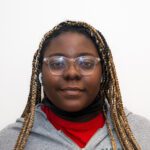Do you have a teenager? Do you monitor the number of pills in your medicine bottle? Do you notice you’re losing track of the medicine in your bottle? Suppose you said yes to all of these questions. In that case, it would be time for you to have a conversation with your teenager about the dangers of improper drug use.
Every day, teens in the United States are negatively affected by prescription drug misuse. Some people think that prescription drugs are safer for the body than illegal drugs. According to Teen Prescription Drug Abuse on the Newport Academy website, “About 2,000 teenagers abuse prescription drugs for the first time. About 14.8% of all high school seniors have abused prescription medication in the last year and are more likely to use other drugs.” The Substance Abuse and Mental Health Services Administration (SAMHSA) states, “As with any type of mind-altering drug, prescription drug misuse and abuse can affect judgment and inhibition, putting adolescents at heightened risk for HIV and other sexually transmitted infections, misusing other kinds of drugs, and engaging in additional risky behaviors.” As you can see, even prescription drugs can affect your mental and physical state like any illegal drug could do.
There are many ways we can prevent teens from misusing prescribed drugs. According to SAMHSA, “One in four teenagers believe that prescription drugs can be used as a study aid and nearly one-third of parents say that they believe that attention-deficit/hyperactivity disorder (ADHD) medication can improve a child’s academic or testing performance, even if that child does not have ADHD. Parents, children, and prescribers must be educated on the impact of prescription drugs on the developing brain.” Educating kids on the safe use of prescribed medicine will have a significant effect on the current and future youth.
SAMHSA also states that prescription drug monitoring is a way to prevent kids from getting access to heavy drugs from doctors or homes without a legitimate reason. They state, “Many people are calling on doctors and pharmacies to better monitor how (and how often) drugs are prescribed. Doctors more readily hand out prescription painkillers than they did ten years ago. According to some sources, pharmacists do not habitually check prescription drug registries, which help identify potential over-prescribing and misuse.” This indicates that teens are not only getting the drugs from medicine cabinets but also from medical professionals.
In most cases, medical professionals are unaware they are overprescribing medicines, according to an article titled “Teens and the Reality of Prescription Drug Misuse.” It states, “Most are obtaining them from friends and relatives, usually without their knowledge. Half of all high school seniors said opioids other than heroin, like Vicodin, would be fairly or very easy to get. Shockingly, 60% to 70% of teens say that their home medicine cabinets are their first and ongoing source of acquiring drugs.” However, if pharmacists checked registries, they would notice that people are running out of their prescribed medicine faster than normal and closely examine what could be happening at home.
A month ago, I was hospitalized for a really bad stomach ache. They did a sonogram and an X-ray, and they could not find out what was wrong with me, so they just sent me home with medicine that they thought would help. The medicine helped, but I couldn’t sleep without it, so I kept taking it to the point my body was dependent on it. When I finally stopped, I couldn’t sleep for days. My body just kept craving more. I didn’t know I had an addiction; I just wanted to feel better. Trying to detox from it was the worst part. I couldn’t sleep or eat, and even getting up for school was an even bigger challenge. Even though it was not purposely misuse of prescription drugs, kids who purposely misuse drugs might be going through worse effects than I did. I’m telling this story because even I was a victim of prescription drug misuse. Any teenager can suffer from this.
In general, doctors and parents need to be held accountable when it comes to teens misusing prescription drugs, whether it’s educating teens or monitoring their usage. Doctors should not give teens opioids, methamphetamines, or depressants without looking closely at their usage. Even as a 14-year-old girl who didn’t purposefully misuse prescription drugs, I struggled; who knows what might have happened to me if I didn’t stop taking those pills? I could have been a lot worse.
